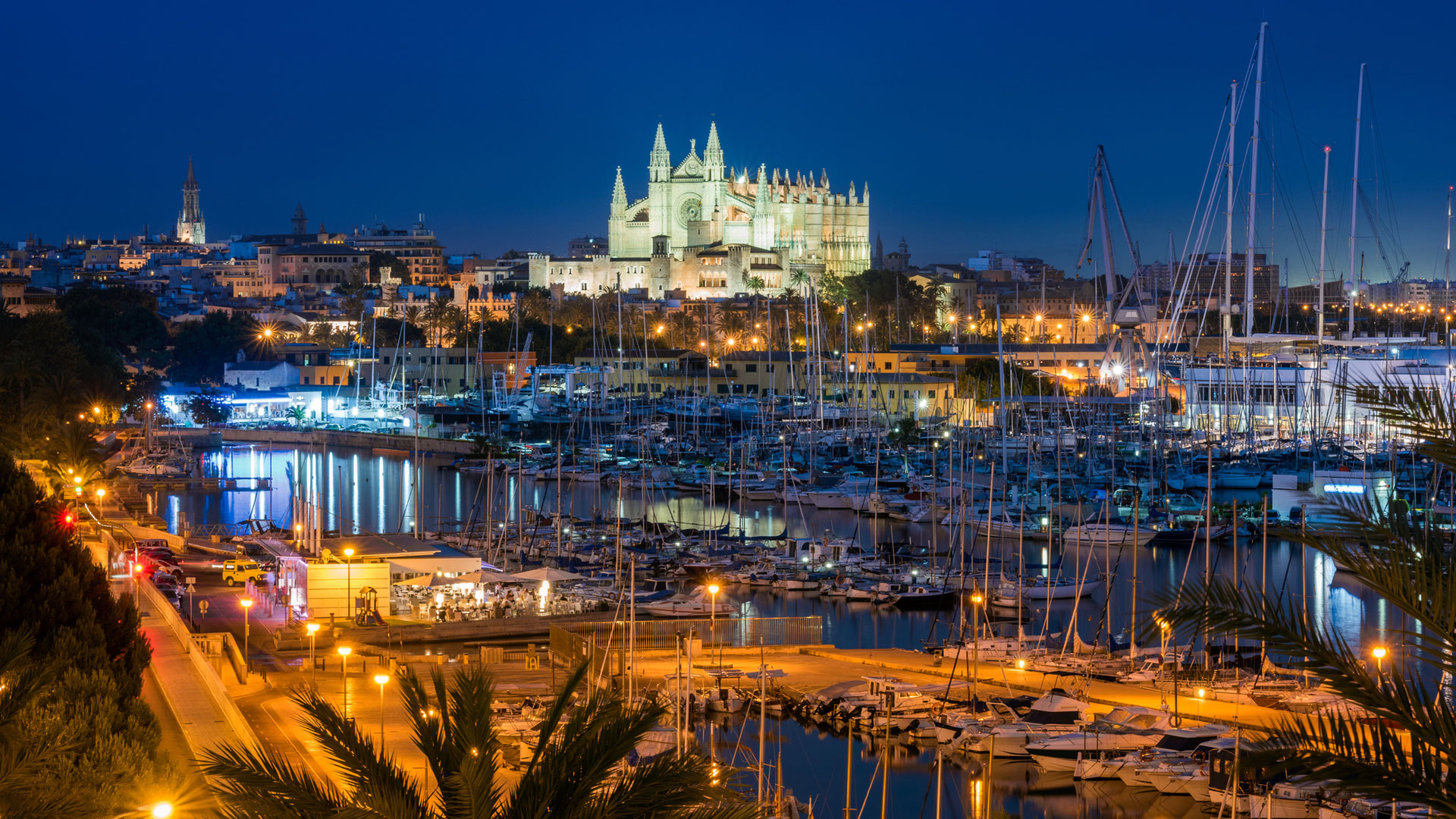



明媚的夏日里天空多么晴朗
美丽的太阳岛多么令人神往
带着垂钓的鱼杆
带着露营的篷帐
我们来到了太阳岛上
我们来到了太阳岛上
小伙们背上六弦琴
姑娘们换好了游泳装
猎手们忘不了心爱的猎枪
心爱的猎枪
幸福的热望在青年心头燃烧
甜蜜的喜悦挂在姑娘眉梢
带着真挚的爱情
带着美好的理想
我们来到了太阳岛上
我们来到了太阳岛上
幸福的生活靠劳动创造
幸福的花儿靠汗水浇
朋友们献出你智慧和力量
明天会更美好
明天会更美好

《曾国藩家书》是曾国藩的书信集,成书于清19世纪中叶。该书信集记录了曾国藩在清道光30年至同治10年前后达30年的翰苑和从武生涯,近1500封。所涉及的内容极为广泛,是曾国藩一生的主要活动和其治政、治家、治学之道的生动反映。曾氏家书行文从容镇定,形式自由,随想而到,挥笔自如,在平淡家常中蕴育真知良言,具有极强的说服力和感召力。尽管曾氏留传下来的著作太少,但仅就一部家书中可以体现他的学识造诣和道德修养。曾国藩作为清代著名的理学家、文学家,对书信格式极为讲究,显示了他恭肃、严谨的作风。
卷一(1840——1852)
曾国藩自1840年得授翰林院检讨,到1849年已经升任礼部侍郎,十年七迁,跃升十级。成为二品大员。他在写给朋友的信中说:“回思善化馆中同车出入,万顺店中徒步过从,疏野之性,肮脏之貎,不特仆不自意其速化至此,即知好三数人,亦不敢为此不近人情之称许。”可见,曾国藩有点“朝为田舍郎,暮登天子堂”的味道。
- 道光二十一年四月十七日 禀祖父母·请给族人以资助
- 道光二十二年二月二十四日 禀父母·闻九弟习字长进
- 道光二十二年三月十一日 禀父母·教弟写字养神
- 道光二十二年四月二十七日 禀祖父母·要叔父教训诸弟以管家事
- 道光二十二年七月初四日 禀父母·劝两弟学业宜精
- 道光二十二年九月十七日 禀祖父母·述与英国议和
- 道光二十二年九月十八日 致诸弟·述求学之方法
- 道光二十二年十月二十六日 致诸弟·明师益友虚心请教
- 道光二十二年十一月十七日 致诸弟·读书宜立志有恒
- 道光二十二年十二月二十日 致诸弟·勉励自立课程
- 道光二十三年正月十七日 禀父母·述家和万事兴
- 道光二十三年正月十七日 致诸弟·讲读经史方法
- 道光二十三年二月十九日 禀父母·教弟以和睦为第一
- 道光二十三年三月十九日 致诸弟·喜述大考升官
- 道光二十三年三月二十三日 禀祖父母·报告荣升侍讲
- 道光二十三年四月二十日 禀父母·述盘查国库巨案
- 道光二十三年六月初六日 禀祖父母·报告考差信
- 道光二十三年六月初六日 致六弟·述学诗习字之法
- 道光二十三年六月初六日 致诸弟·劝述孝悌之道
- 道光二十四年正月二十五日 禀父母·寄银还债济人
- 道光二十四年正月二十六日 致诸弟·交友拜师宜专一
- 道光二十四年二月十四日 致诸弟·温经更增长见识
- 道光二十四年三月初十日 禀祖父母·先馈赠亲戚族人
- 道光二十四年三月初十日 致诸弟·述接济亲戚族人之故
- 道光二十四年五月十二日 致诸弟·勿为时文所误
- 道光二十四年七月二十日 禀父母·劝弟勿夜郎自大
- 道光二十四年八月二十九日 禀祖父母·赠亲戚族人数目
- 道光二十四年八月二十九日 致诸弟·劝弟谨记进德修业
- 道光二十四年九月十九日 禀父母·教弟注重看书
- 道光二十四年九月十九日 致诸弟·必须立志猛进
- 道光二十四年十月二十一日 致诸弟·劝弟切勿恃才傲物
- 道光二十四年十一月二十一日 致诸弟·读书必须有恒心
- 道光二十四年十二月十八日 致诸弟·教弟婚姻大事须谨慎
- 道光二十五年正月初十日 致诸弟·家中务请略有积蓄
- 道光二十五年二月初一日 致诸弟·按月作文寄京
- 道光二十五年三月初五日 致诸弟·取款及托带银
- 道光二十五年四月二十四日 致诸弟·必须亲近良友
- 道光二十五年五月初五日 致诸弟·喜述升詹事府右春坊右庶子
- 道光二十五年五月二十九日 禀父母·万望匆入署说公事
- 道光二十五年六月十九日 禀父母·取借款须专人去
- 道光二十五年九月十七日 禀叔父·不辞劳苦料理朋友的丧事
- 道光二十五年十月初一日 禀叔父母·报告升翰林院侍读学士
- 道光二十五年十月二十九日 禀父母·敬请祖父换蓝顶
- 道光二十五年十一月二十日 禀父母·拟为六弟纳监
- 道光二十六年正月初三日 禀父母·报告两次兼职
- 道光二十六年三月初一日 致诸弟·交友须勤加来往
- 道光二十六年三月二十五日 禀父母·请勿悬望得差
- 道光二十六年四月十六日 致诸弟·评文字之优劣
- 道光二十六年五月十七日 禀父母·附呈考差诗文
- 道光二十六年闰五月十五日 禀父母·贺六弟成就功名
- 道光二十六年六月十七日 禀叔父母·请兑钱送人
- 道光二十六年六月二十七日 致诸弟·切勿占人便宜
- 道光二十六年九月十九日 禀父母·不敢求非分之荣
- 道光二十六年十月十五日 禀父母·请四弟送归诰轴
- 道光二十七年二月初十日 禀父母·谨遵家命一心服官
- 道光二十七年六月十八日 致诸弟·述升内阁学士
- 道光二十七年七月十八日 禀父母·勿因家务过劳
- 道光二十八年正月二十一日 致诸弟·无时不想回家省亲
- 道光二十八年五月初十日 致诸弟·告诫弟弟要清白做人
- 道光二十八年十二月初十日 致诸弟·述改建祖屋之意见
- 道光二十九年二月初六日 致诸弟·喜述补侍郎缺
- 道光二十九年四月十六日 禀父母·做事当不苟不懈
- 道光二十九年七月十五日 致诸弟·节俭置田以济贫民
- 道光二十九年十月初四日 致诸弟·述奉旨为较射大臣
- 道光三十年正月初九日 致诸弟·迎养父母叔父
- 咸丰元年三月十二日 致诸弟·具奏言兵饷事
- 咸丰元年五月十四日 致诸弟·进谏言戒除骄矜
- 咸丰元年八月十九日 致诸弟·详述办理巨盗及公议粮饷事
- 咸丰元年九月初五日 致诸弟·劝宜力除牢骚
- 咸丰二年七月二十六日 谕纪泽·料理丧母之后事离京
- 咸丰二年八月初八日 谕纪泽·携眷赶紧出京
- 咸丰二年九月十八日 谕纪泽·家眷在京须一切谨慎
卷二(1853——1866)
1853年1月(咸丰三年),被太平天国搞得焦头烂额、心急如焚的咸丰帝,情急之下诏令曾国藩办理团练,任命曾国藩为湖南团练大臣。历史又一次给了曾国藩展示才能的机会。借着清政府急于寻求力量镇压太平天国的时机,曾国藩因势在其家乡湖南一带,依靠师徒、亲戚、好友等复杂的人际关系,建立了一支地方团练,称为湘勇,并派人赴广东购买西洋火炮,筹建水师。1854年(咸丰四年)2月25日,奉命率师出征太平军,发布《讨粤匪檄》。1864年7月19日,湘军攻陷天京,太平军宣告失败。1865年5月26日,接上谕:率军赴山东剿捻。
- 咸丰四年八月十一日 致诸弟·在家宜注重勤敬和
- 咸丰四年九月十三日 致诸弟·勿使子侄骄奢淫佚
- 咸丰四年十月二十二日 致诸弟·读书宜选一明师
- 咸丰四年十一月初七日 致诸弟·带归度岁之资
- 咸丰五年四月二十日 致诸弟·述营中急需人才
- 咸丰五年七月初八日 致诸弟·调彭雪琴来江
- 咸丰五年九月三十日 致诸弟·喜闻九弟得优贡
- 咸丰六年九月初十日 致四弟·不宜露头角于外
- 咸丰六年十月初二日 谕纪泽·宜教家人勤劳持家
- 咸丰六年十月初三日 致四弟·宜常在家侍侯父亲
- 咸丰六年十一月初七日 致四弟·不宜常常出门
- 咸丰六年十一月二十九日 致四弟·得两弟为帮手
- 咸丰七年九月二十二日 致九弟·劝宜息心忍耐
- 咸丰七年十月初四日 致九弟·劝弟须保护身体
- 咸丰七年十一月初五日 致九弟·交人料理文案
- 咸丰七年十二月十四日 致九弟·做人须要有恒心
- 咸丰七年十二月二十一日 致九弟·愧对江西绅士
- 咸丰八年正月十一日 致九弟·为政切不可疏懒
- 咸丰八年正月十四日 致九弟·顺便可以周济
- 咸丰八年正月二十九日 致九弟·周济受害绅民
- 咸丰八年二月十七日 致九弟·患难与共勿有遗憾
- 咸丰八年三月初六日 致九弟·言凶德有二端
- 咸丰八年三月二十四日 致九弟·愿共鉴诫二弊
- 咸丰八年三月三十日 致九弟·注意平和二字
- 咸丰八年四月初九日 致九弟·宜以求才为大事
- 咸丰八年四月十七日 致九弟·述捐银作祭费
- 咸丰八年五月初五日 致九弟·劝捐银修祠堂
- 咸丰八年五月初六日 致九弟·述弟为政优于带兵
- 咸丰八年五月三十日 致九弟·归家料理祠堂
- 咸丰八年七月二十一日 致四弟、季弟·在家里注重种蔬等事
- 咸丰八年八月初四日 致九弟·拟保举李次青
- 咸丰八年十一月二十三日 致诸弟·宜兄弟和睦又实行勤俭二字
- 咸丰八年十二月十六日 致诸弟·述家庭不可说利害话
- 咸丰八年十二月二十日 致诸弟·述六弟妇治家贤慧而命最苦
- 咸丰九年正月十一日 致诸弟·述起屋造祠堂
- 咸丰九年六月初四日 致四弟·读书不可太疏忽
- 咸丰十年三月二十一日 致九弟·宜平骄矜之气
- 咸丰十年三月二十四日 致九弟、四弟·早起乃健身之妙方
- 咸丰十年闰三月二十九日 致四弟·治家有八字诀
- 咸丰十年五月十四日 致四弟·居乡要诀宜节俭
- 咸丰十年六月初十日 致九弟、季弟·述杨光宗不驯
- 咸丰十年六月二十八日 致沅弟、季弟·嘱文辅卿二语
- 咸丰十年七月初八日 致沅弟、季弟·随时推荐出色的人
- 咸丰十年七月十二日 致九弟、季弟·以勤字报君以爱民二字报亲
- 咸丰十年十月二十日 致九弟、季弟·做后辈宜戒骄横之心
- 咸丰十年十月二十四日 致四弟·教子侄宜戒骄奢佚
- 咸丰十年十月二十四日 致九弟、季弟·须戒傲惰二字
- 咸丰十年十二月初四日 致四弟·教子侄做人要谦虚勤劳
- 咸丰十年十二月二十四日 致四弟·用药须小心谨慎
- 咸丰十一年正月初四日 致四弟·教子弟去骄气惰习
- 咸丰十一年二月初四日 致四弟·不宜非议讥笑他人
- 咸丰十一年二月二十四日 致四弟·教子弟牢记祖训八字
- 同治元年二月二十一日 致季弟·述长江厘卡太多
- 同治元年三月初三日 致九弟、季弟·述筹办粤省厘金
- 同治元年三月二十四日 致九弟·述告办事好手不多
- 同治元年四月初六日 致九弟·述抽本省之厘税
- 同治元年四月十二日 致九弟·宜多选好替手
- 同治元年五月十五日 致九弟、季弟·做人须清廉谨慎勤劳
- 同治元年五月二十八日 致九弟、季弟·必须自立自强
- 同治元年六月初二日 致九弟、季弟·述有负朋友
- 同治元年六月二十日 致九弟·望勿各逞己见
- 同治元年七月二十日 致九弟、季弟·治身宜不服药
- 同治元年七月二十五日 致九弟、季弟·服药不可大多
- 同治元年闰八月初四日 致四弟·劝弟须静养身体
- 同治元年九月初四日 致四弟·与官相见以谦谨为主
- 同治元年十一月十四日 致四弟·教弟必须爱惜物力
- 同治二年正月初三日 致九弟·述兄弟同获圣恩
- 同治二年正月十四日 致四弟·惜福贵乎勤俭
- 同治二年正月十七日 致九弟·申请辞退一席
- 同治二年正月十八日 致九弟·述让纪瑞承荫
- 同治二年正月二十七日 致九弟·述纪梁宜承荫
- 同治二年三月二十四日 致九弟·述治事宜勤军
- 同治二年四月初一日 致九弟·述奏议乃为臣之事
- 同治二年四月十六日 致九弟·不必再行辞谢
- 同治二年四月二十七日 致九弟·处事修身宜明强
- 同治二年六月初一日 致九弟·欣悉家庭和睦
- 同治二年七月二十三日 致九弟·战事宜自具奏
- 同治二年十一月十二日 致九弟·只问积劳不问成名
- 同治三年三月初四日 致四弟·宜劝诸侄勤读书
- 同治三年四月十三日 致九弟·万望毋恼毋怒
- 同治三年五月初十日 致九弟·宜以自养自医为主
- 同治三年五月二十三日 致九弟·凡郁怒最易伤人
- 同治三年八月初四日 致四弟·教子勤俭为主
- 同治三年十二月十六日 致四弟、九弟·宜居家时苦学
- 同治四年正月二十四日 致九弟·讲求奏议不迟
- 同治四年五月二十五日 致四弟、九弟·谆嘱瑞侄用功
- 同治四年十一月十六日 致四弟、九弟·千里寄银礼轻义重
- 同治五年六月初五日 致四弟·述养身有五事
- 同治五年九月十二日 致九弟·宜自修处求强
- 同治五年十二月初六日 致四弟·送银子共患难者
卷三(1867——1872)
1867年(同治六年)3月,在江南制造总局下设造船所试制船舰,同时拟设译书馆。1872年(同治十一年)2月27日,曾国藩领衔上奏,促请对“派遣留学生一事”尽快落实。并提出在美国设立“中国留学生事务所”;在上海设立幼童出洋肄业局。1870年(同治九年)6月,天津教案发生,“忠君”与“贵民”两种观念又一次将他夹在了中间。对天津教案的处置引发了轩然大波,让曾国藩“积年清望几于扫地以尽”,这也成为其一生憾事。两年后,曾国藩去世。朝廷闻讯,辍朝三日。追赠太傅,谥文正,祀京师昭忠,贤良祠。


Dominio de Pingus is a Spanish winery located in Quintanilla de Onésimo in Valladolid province with vineyards in La Horra area of the Ribera del Duero region. The estate's flagship wine, Pingus, is considered a "cult wine", sold at extremely high prices while remaining very inaccessible,[1][2] and commands an average price of $811 per bottle.[3]
The winery also produces a second wine, Flor de Pingus, and a special cuvée, Ribera del Duero "Amelia". Recently, Dominio de Pingus has founded a joint project with local grape producers to make an old vine tempranillo called "PSI".
Dominio de Pingus was established in 1995 by Danish oenologist Peter Sisseck, also manager of the Pesquera de Duero estate Hacienda Monasterio.[4] On the estate's winemaking philosophies, Sisseck has stated, "The vines in my plots are very old. They have never been fertilised nor treated with pesticides and all grow following the traditional en vaso system. They are perfect."[4]
About the first 1995 vintage of Pingus, Robert Parker declared, "One of the greatest and most exciting wines I have ever tasted".[5] With a very limited first vintage production, only 325 cases were made with prices initially set at US$200 per bottle, it became yet more scarce when in November 1997 the ship transporting a U.S. bound shipment of 75 cases disappeared somewhere off the Azores in the North Atlantic Ocean.[6] The shipwreck resulted in a dramatic reaction in the US market, with prices soon rising to $495 per bottle.[5][6]
At the Ronda WineCreator conference of April 2008, Sisseck was angered by suggestions by Decanter editor Guy Woodward that some winemakers make wines to suit the palates of certain critics. In response he called Woodward's remarks arrogant for implying winemakers do not have their own opinions, adding, "I don't even think it is possible to do this."[7]
In 2007 it was announced that the Spanish government had approved plans to expand highway roads through the vineyards of Dominio de Pingus and other wineries, which was met with strong opposition by Sisseck who called it a "vengeful measure".[8]
Planted with very old vines of Tinto Fino, i.e. Tempranillo, the vineyards are 2.5 hectares (6.2 acres) in Barrosso with vines exceeding 65 years and 1.5 hectares (3.7 acres) in San Cristobal with vines older than 70 years, and the unusually low average yield of 12 hL per hectare. Since 2000, the viticulture has been biodynamic. Of the annual production of Pingus there is typically less than 500 cases, though in poor vintages no Pingus is made.
The production of the second wine Flor de Pingus, also 100% Tempranillo, is made with fruit from rented vineyards in the La Horra zone, with vines older than 35 years. Since the 2005 vintage, the viticulture has been biodynamic. The annual production is on average 4,000 cases.
Additionally there has been the single barrel cuvée, Ribera del Duero "Amelia", made from a vineyard parcel of 100+ year old vines with an average yield of 10 hL per hectare, with biodynamic viticulture since its initial 2003 vintage. The 2005 vintage had a production of 25 cases.
"PSI" is a joint project based on fruit produced by local grape growers from old tempranillo vines. The goal is to help grape producers and save old vines. Project was founded in 2006, first vintage was 2007. Grape growers are encouraged to employ biodynamic or organic vineyard management practices. The wine is made by Peter Sisseck and Pablo Rubio and sold under producer name Bodegas y Viñedos Alnardo. Vinification takes place in large concrete vats and aging in concrete and wooden tanks and oak barrels. Production of PSI 2009 was 9,600 cases, PSI 2010 was 16,600 cases.




Palma de Mallorca5 (oficialmente, Palma)678 es una ciudad y municipio español, capital de la isla de Mallorca y de la comunidad autónoma de las Islas Baleares. Es además sede del partido judicial número tres de la provincia y de la diócesis de Mallorca. Está ubicada en la parte occidental del mar Mediterráneo y, dentro de la isla, hacia el suroeste. Se encuentra a unos 250 km al este de la península ibérica.
Su término municipal ocupa una extensión de 208,63 km² que se extienden entre la sierra de Na Burguesa y el Prado de Sant Jordi. Se sitúa en el centro de la bahía de Palma, a unos 13 metros de altura sobre el nivel del mar. La atraviesan varios torrentes, como el la Riera y el de Gros.
Con 416 065 habitantes en enero de 2019, Palma es la octava mayor ciudad de España por población y la primera de las Islas Baleares.9 Su área metropolitana engloba nueve localidades con 560 240 habitantes, repartidos en una superficie de 1015,88 km², siendo la 14.ª de España.10
Fue fundada con el nombre de Palma por el cónsul romano Quinto Cecilio Metelo Baleárico en el año 123 a. C. Se estima que su asentamiento actual corresponde con las ruinas romanas que se encuentran bajo su casco histórico, aunque aún no existen pruebas irrefutables.1112 Después de estar en manos de los vándalos y los árabes en 903, fue conquistada por el rey Jaime I de Aragón el 31 de diciembre de 1229,13 convirtiéndose en la Ciutat de Mallorca, capital de su propio reino, que decayó tras su incorporación a la Corona de Aragón en 1279.
En 1715 entraron en vigor los Decretos de Nueva Planta, recuperando la ciudad su topónimo romano, Palma. Poco después, ya en el siglo xx, fue protagonista de la explosión de un intenso auge turístico que la usó como destino vacacional durante las décadas de 1960 y 1970. En la actualidad constituye un notable centro económico y cultural a nivel insular y autonómico.


夜上海 Shanghai Nite 天涯歌女 Vagrant Singing Girl 花好月圆 Blooming Flower and Full Moon 月光小夜曲 Moonlight Serenade 五月的風 May Wind 香格里拉 Shangri-La 落花流水 Falling Flowers and Flowing Water 我家在哪裡 Where is My Home 給我一個吻 Give Me A Kiss 蘇州河邊 Over the Suzhou River
敲敲門 Knocking at Your Door 採檳榔 Pick the Better Palm 雨中徘徊 Wander in the Rain 04 嘆十聲 Ten Sighs 如果沒有你 If Without You 明月千里寄相思 Sending Love Thousands of Miles 江水向東流 The River Flows Eastward 08 昨夜你對我一笑 Smile with Me in Last Night 相思河畔 By the River of Lovesickness 我找到自己 I Find Myself 祝你順風 A Pleasant Journey to You 01. 00:00 花樣的年華 【詞:范煙橋 曲:林枚 原唱:周璇】 02. 03:26 鳳凰于飛 【詞:陳蝶衣 曲:陳歌辛 原唱:周璇】 03. 07:20 天上人間 【詞:楊彥歧 曲:姚敏 原唱:李麗華】 04. 11:26 西湖春 【蘇州話】 【詞:江濤 曲:陳歌辛 華語原唱:李麗華】 05. 14:52 桃李爭春 【現場版】 【詞:李雋青 曲:陳歌辛 原唱:白光】 06. 18:49 我有一段情 【詞:辛夷 曲:姚敏 原唱:吳鶯音】 07. 23:29 薔薇處處開 【詞:陳歌辛 曲:陳歌辛 原唱:龔秋霞】 08. 27:09 小小洞房 【滬語】 【詞:吳祖光 曲:陳歌辛 華語原唱:周璇】 09. 31:07 月圓花好 【詞:范煙橋 曲:嚴華 原唱:周璇】 10. 34:43 永遠的微笑 【詞:陳歌辛 曲:陳歌辛 原唱:周璇】 11. 39:29 情人的眼淚 【詞:陳蝶衣 曲:姚敏 原唱:潘秀瓊】 12. 44:46 今宵多珍重 【詞:林達 曲:王福齡 原唱:崔萍】


仁:仁者,人人心德也。心德就是良心,良心即是天理,乃推己及人意也。所以仁字,从二人相处,因为人不能离群而独存,别人之观念立,人之人格显,方能雍容和谐,以立己立人,发挥老吾老幼吾幼之怀抱,以及己所不欲,勿施于人,事物为人,而不为己,发为恻隐之心,宽裕温柔,仁也。
义:义者,宜也,则因时制宜,因地制宜,因人制宜之意也。所当做就做,不该做就不做。见得思义,不因果滥取不义之财物。子曰:「君子喻於义,小人喻於利,不义而富且贵,於我如浮云。」所以人发为羞恶之心,发为刚义之气,义也。
礼:礼者,说文:礼,履也,所以事神致福也。释名:礼,体也,得其事证也,人事之仪则也。进退周旋得其体,乃是正人身之法也。尊卑长幼有序,处事有规,淫乱不犯,不败人伦,以正为本,发为恭敬之心,斋庄中正之态,礼也。
智:智者,知也,无所不知也。明白是非、曲直、邪正、真妄,即人发为是非之心,文理密察,是为智也。
信:信者,信字从人言,言非曰,乃有定之文也,以今之概念定义可解为“学说”、“思想”。信与知对立,知宜者唯宜以行,不知宜者从他人言而信,进而守礼以近仁。因此言:必信者无义。
孔子曾将“智仁勇”称为“三达德”,又将“仁义礼”组成一个系统,曰:“仁者人(爱人)也,亲亲为大;义者宜也,尊贤为大;亲亲之杀,尊贤之等,礼所生焉。” 仁以爱人为核心,义以尊贤为核心,礼就是对仁和义的具体规定。
孟子在仁义礼之外加入“智”,构成四德或四端,曰:“仁之实事亲(亲亲)是也;义之实从兄(尊长)是也;礼之实节文斯二者是也;智之实,知斯二者弗去(背离)是也。” “性善说”,曰:“恻隐之心,人皆有之;羞恶之心,人皆有之;恭敬之心,人皆有之;是非之心,人皆有之。恻隐之心,仁也;羞恶之心,义也;恭敬之心,礼也;是非之心,智也。仁义礼智,非由外铄我也,我固有之也,弗思耳矣。” (《孟子·告子上》)
董仲舒又加入“信”,并将仁义礼智信说成是与天地长久的经常法则(“常道”),号“五常”。 曰:“夫仁、谊、礼、知、信,五常之道。”(《举贤良对策一》)















